‘It was over – I’d made it … I did six years of it’: War veterans reflect on their brave sacrifices
At 107, Colin Wagener remembers his time at WWII as if it was yesterday, telling how the closest he came to dying was when some “mad pilots” he worked with had a brain fade.
Lifestyle
Don't miss out on the headlines from Lifestyle. Followed categories will be added to My News.
South Australia’s oldest World War II veteran doesn’t consider himself a hero – in fact, it’s “the last thing” on his mind.
Instead, 107-year-old Colin Wagener tried to “wipe the whole lot clean” and forget about the war upon his return home in 1945.
In 1939, at just 19, Mr Wagener said goodbye to his loved ones and, at 23, he was “well and truly” in the midst of battle – a foreign concept for the 23-year-old journalist sitting opposite him.
“The main worry I have in my life is about buying a house, or stressing on a Friday night before a footy game, but you were – at 23 – fighting in a war,” I say to him.
“It’s hard to comprehend. How did you get through it?”
“You just had to think about something else – you were doing a job you had to do,” Mr Wagener responds.
“I was one of those crazy boys who joined up before the war … of the four people I joined up (with), three of them didn’t make it and one nearly didn’t make it.”
He says his happy memory of arriving home on Christmas Day 1945 will never dim.
“The one memory that sticks out was getting off the train at half past ten on Christmas morning in 1945,” he says.
“It was over – I’d made it … I did six years of it.
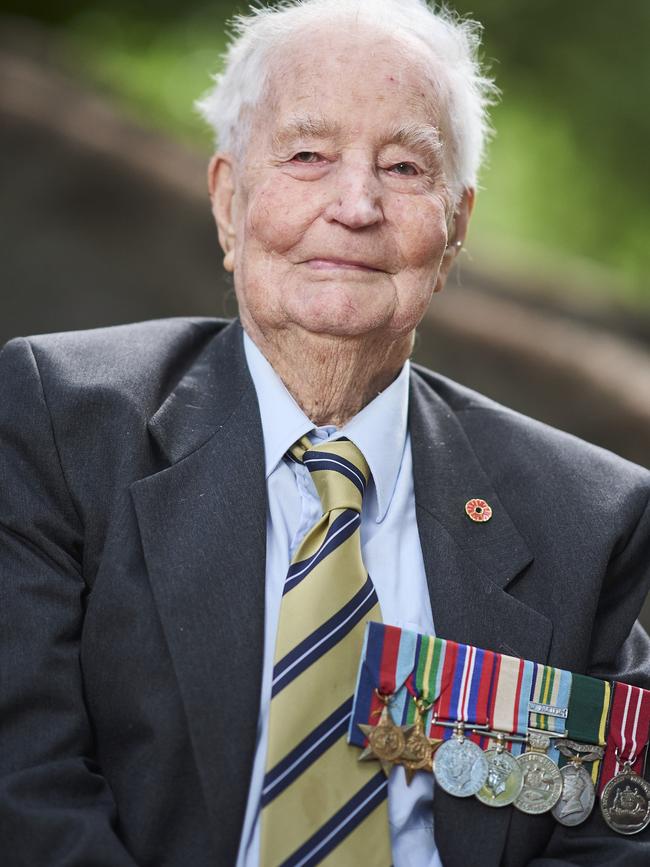
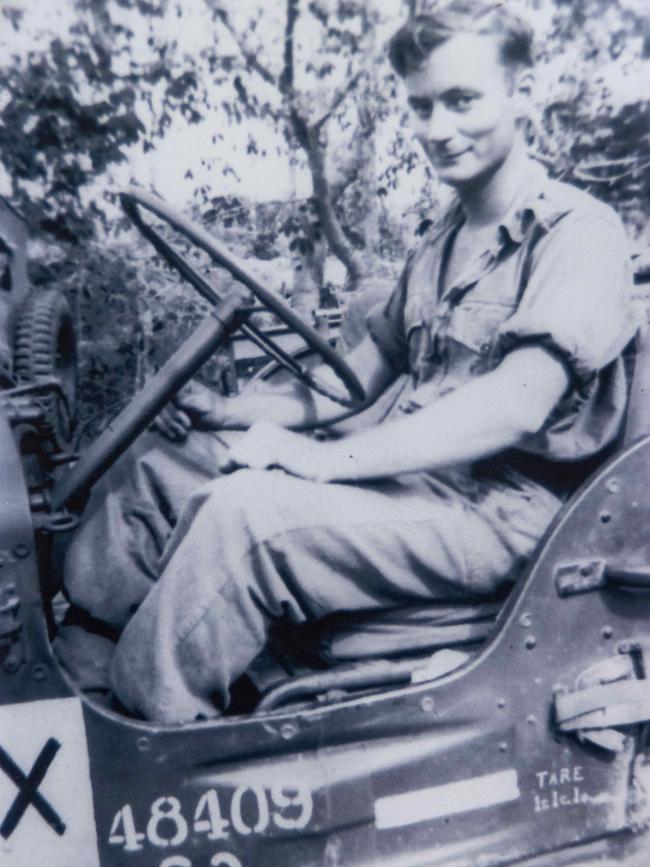
“My father picked me up and brought me home and it was a wonderful feeling to walk up my front door knowing I’d never have to go away again.
“I’m not too sure what sort of dinner I had but I’m sure it was a good one because we didn’t have much to eat on the ship home; they were cargo ships – not made for carrying passengers – (and) there was nowhere to eat, nowhere to sleep … but it didn’t matter, it was putting you in the right direction. We were going home.”
Mr Wagener, who was in the signals unit – responsible for “telling them when to start firing or turn on the searchlights” – reflects on the “closest” he ever came to death during the war.
“I was in a hut, and there was about four or five other chaps in there – they were air force chaps,” he recalls.
“We had a big screen to look at night time to see if there were any Japanese planes coming in, and they saw one – we saw a dot coming in.
“I was on the radio, so I had to get through to all the guns to sort of get them to open (fire) on it but unfortunately there was somebody else on my frequency.
“So, the Japanese plane went over. Nobody shot at it, but these mad pilots that I was with, we had a light on and they said ‘how do you get this light off?’
“The plane came over and saw our light and dropped a bomb – and it just missed.
“The whole hut shook up, but that was enough for the American boats in the harbour to know it was a wartime plane and as it came over, they shot it down.”
These days, Mr Wagener spends his days on his 24-hectare Adelaide Hills property – riding his beloved motorbike around and playing games on his computer.
“That’s my hobby,” he says.
– reporting by Charlie Dadds
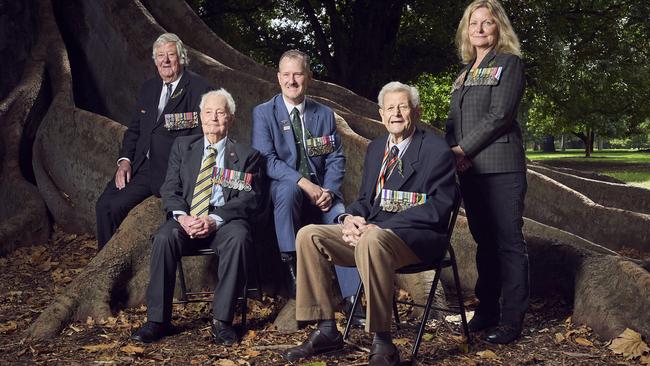
‘Anybody who says they’re not scared is a fool’
– Patrick Forbes, 95; Korean War veteran
It is hard to imagine this good-humoured, cultured and impeccably-spoken gentleman on a battlefield but Patrick Forbes was awarded a Military Cross (MC) for his gallantry in Korea – his dad received a MC in WWI and older brother in WWII.
“They were kind enough to give me one too,” the humble 95-year-old says.
A lieutenant in the 2nd Battalion with the Royal Australian Regiment (RAR), he commanded the assault platoon in the “night-time war”, checking and maintaining minefield wire on the battalion and guiding patrols through the minefields.
“(He performed) these dangerous tasks regularly and unflinchingly despite the fact he was frequently under hostile fire … on two separate occasions, he was involved in recovering our casualties from within a minefield; at all times his personal courage, zeal and efficiency were a constant inspiration,” the Australian Virtual War Memorial notes.
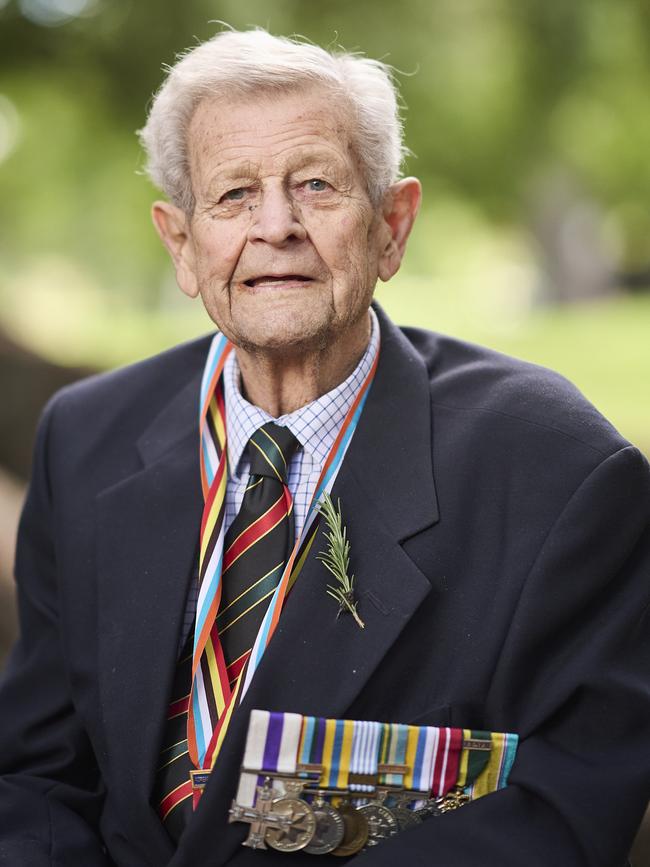
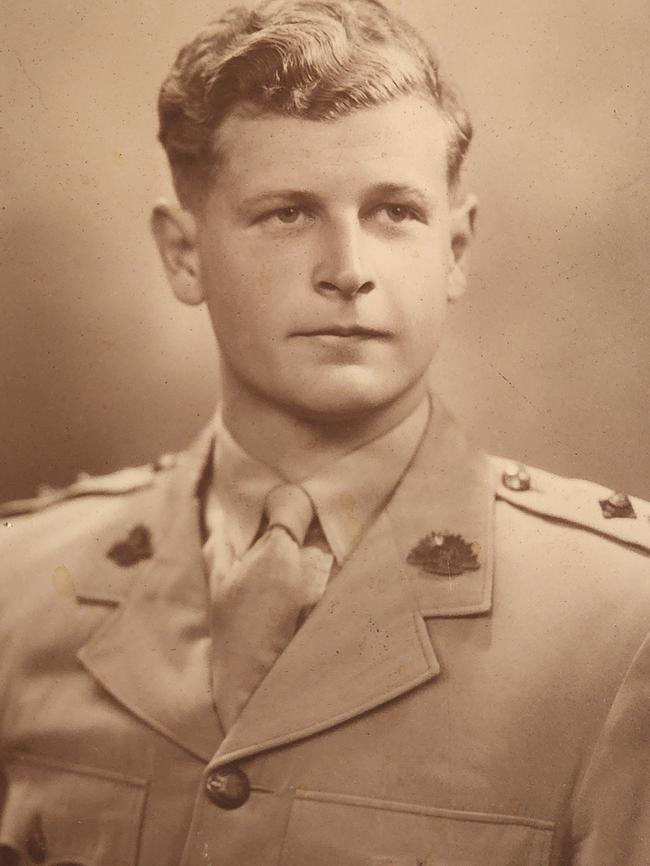
Like so many other veterans Mr Forbes, who post military served as a Senior Australian Trade Commissioner in several overseas postings including at Hong Kong and Germany, says he never really spoke about his time at war.
“Dad went right through the First World War, from the first day in Gallipoli and then to France but I never talked to him about it … it is very difficult to imagine what that period was like,” he says.
When asked if he was ever scared, he responds: “I won’t answer that because you just got on and did your job … but anybody who says they’re not scared is a fool.”
The Sydney-born St Peter’s College old scholar chooses his words carefully when he reflects on the “Battle of the Hook,” Australia’s last battle of the war, after a truce was signed but before it officially took effect.
“It was a frightful time … the place was a mess,” he says.
Today, Mr Forbes’ focus is his wife of 68 years, Janet, four sons, eight grandchildren and three great-grandchildren.
He is proud, too, of his work with legacy, supporting the widows and families of veterans.
“(At one point) I had 15 war widows I was looking after … they were what Janet called my ‘stable of fillies’,” he says.
Mr Forbes’ good friend and fellow Korean veteran Peter Scott sadly passed away the day before this interview.
– reporting by Rebecca Whitfield-Baker
‘All of a sudden … you’ll be back over there’
– Norman Goodall, 81; Vietnam War veteran
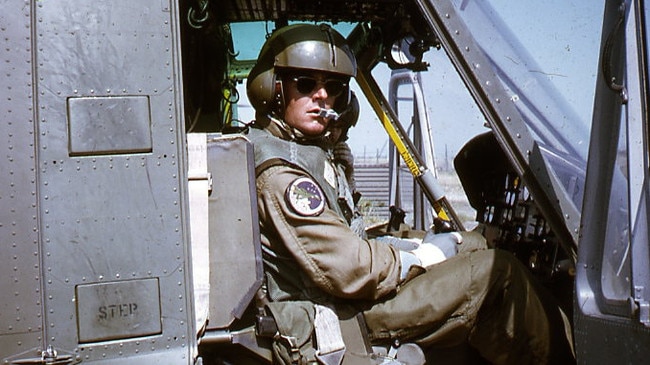
Brave, bold and daring are the words that come to mind on meeting Norm “Stormin’ Norman” Goodall, a one-time fighter jet pilot.
Still, there are days the Strathalbyn octogenarian who got his pilot’s licence at 16, finds himself overcome with emotion; smells, sounds and “moments” will take him back to the controversial war in Vietnam in which more than 500 Australian service personnel died.
“It doesn’t go away … all of a sudden you can be doing something and it comes back and bites you and you’ll be back over there … I can get quite teary without any warning,” he says.
The former flight lieutenant in the Royal Australian Air Force’s “9 SQN” helicopter squadron, flew Bell UH-1 Iroquois – commonly known as “the Huey” – during the conflict, having briefly flown fighter jets – mirage and sabres – in Malaysia.
“I loved flying fixed wing craft because you can turn it upside down and do all those sort of things … but flying the choppers in Vietnam was a lot more challenging, for example night dust-offs (medical evacuations) approaching a single light,” he says.
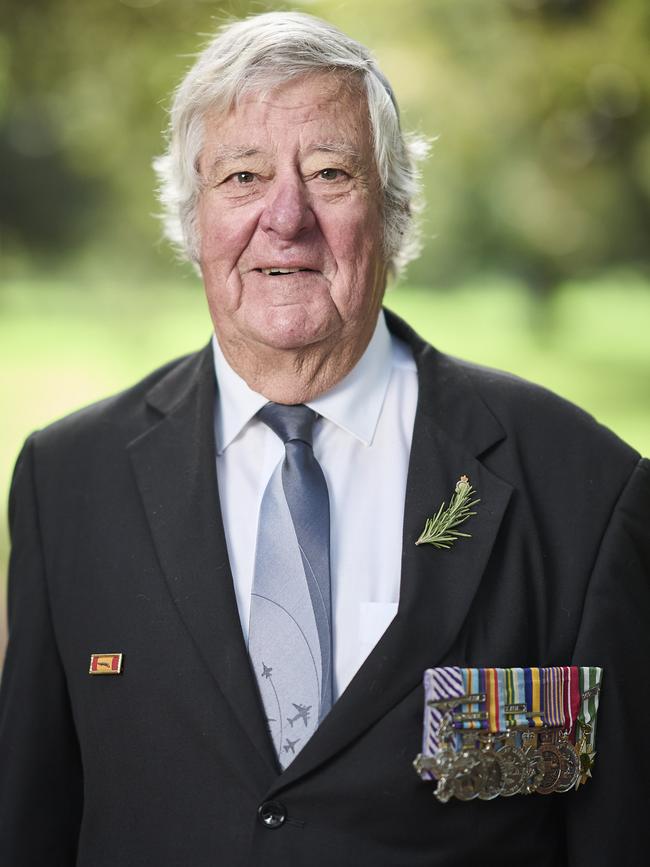
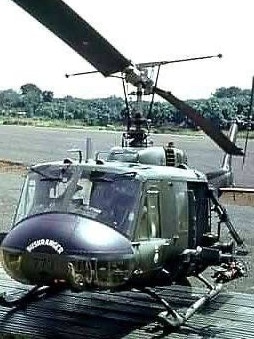
In Vietnam, the Distinguished Flying Cross recipient clocked up almost 1000 hours of flying time and was involved in more than 50 contacts with the enemy.
“At the start when you first heard rounds go past – it was a ‘crack, crack, crack’ – you’d ask, ‘what was that?’ … you’d be told, ‘oh, that’s just incoming’ and you got used to it pretty quickly,” he says.
The man with a warm smile and hearty laugh, who flew choppers for private operators including those servicing offshore oil rigs on his return from Vietnam, candidly admits the experience of war remains vivid.
His voice waivers as he recalls the death of a pilot in a “firefight”, 10 days before two crewmen supporting a medevac were also killed, the fallen comrades not honoured in a “ramp ceremony” – a military memorial service – as happens now.
The plain-speaking 81-year-old says he returned from Vietnam a “hardened” version of himself, only to face the incredibly hurtful reaction by so many to those who’d fought in Vietnam.
“I think the national service guys suffered even more than we did,” he says.
“When we celebrate Anzac day, we’re not glorifying war, we’re paying our respects to those people who’ve (allowed us to live in) such a great country ... you’ve got to be proud to be Australian, otherwise what did they give their lives for?”
– reporting by Rebecca Whitfield-Baker
‘I’ll be frank with you, I don’t talk to anyone about (Afghanistan)’
Peter Bogatec, 58; War in Afghanistan
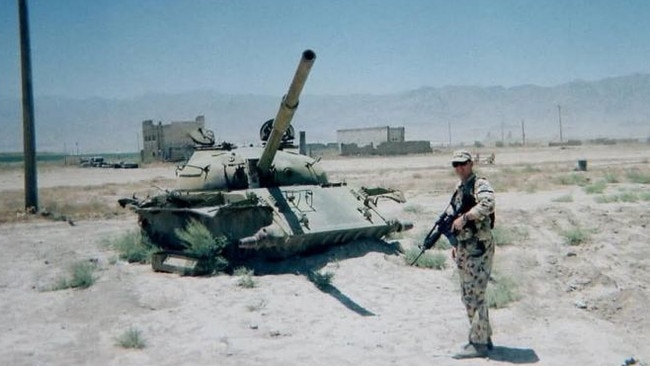
Anzac Day, 2006, will forever be etched in the mind of Adelaide barrister Peter Bogatec.
The then commando officer with the Australian Army had just arrived in Afghanistan as part of a special operations task group.
“I was part of an advance force and there were half a dozen Kiwis there also and so we did a Dawn Service … it was very surreal,” he recalls.
Bogatec, who took on his wife’s name after marriage and asked for his maiden name to be protected, spent three decades in the defence force with his tour to Afghanistan his last.
He first entered the navy as a teenager before transferring to the army, and also served in uniform as a police officer in New South Wales for several years.
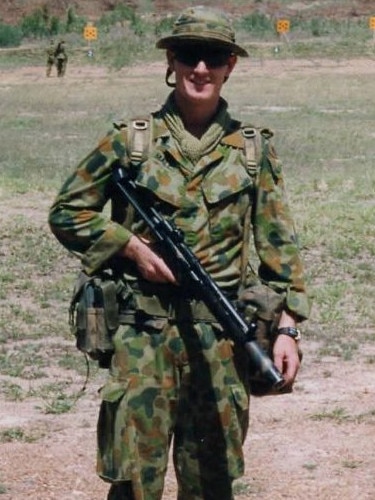
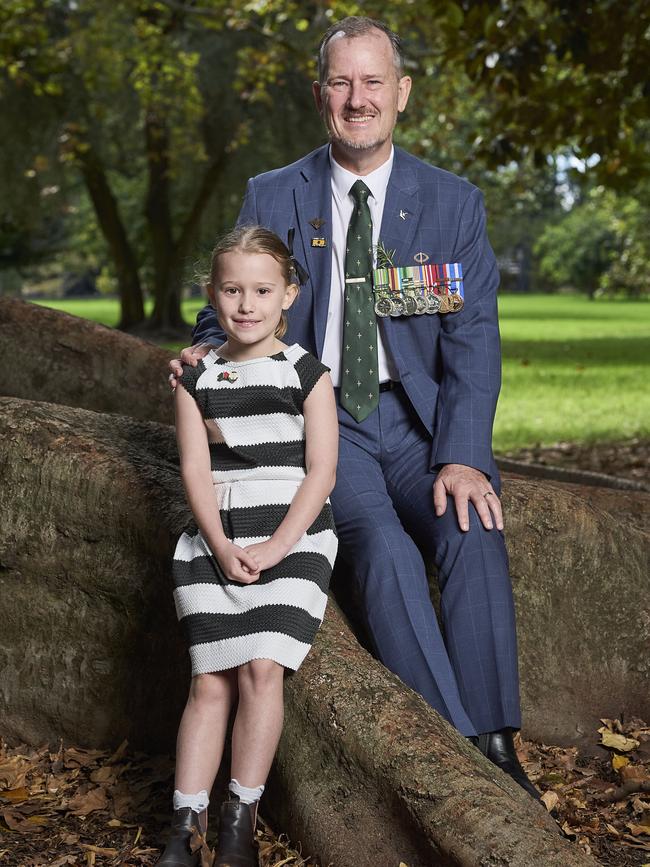
He says his enduring memory of Afghanistan was heat and exhaustion.
“It was summer and it was very, very busy … the conflict very highly escalated,” he says
“During the high intensity periods when ground forces missions were occurring, I would do my 12-hour shift as a watch-keeper and then roll into an AC-130 gunship … and go on an air mission that would last from six to eight hours.
“You’d get back to base and try to get three hours sleep ahead starting again … it was that the level of sleep versus work and everyone was juggling a number of jobs.”
Two decades on, there are memories he struggles with including the ambushing of a commando company by Taliban fighters which resulted in “18 or 20 casualties”.
He recalls, too, watching helplessly as a US navy Seal “sat on the bed opposite me and cried for three hours”, on learning he wouldn’t be rotated out to go home as planned.
“I’ll be frank with you, I don’t talk to anyone about (that time) … I only had to go once, a lot of my peers had to go eight times,” he said.
“At times our troops would be outnumbered by Taliban fighters … 200 versus 1000.”
Today he is a barrister, fighting for veterans in courts across the nation.
“Most of (my clients) served in Afghanistan or Iraq; when they talk about those places and the bases … I understand what they’re talking about,” he says.
– reporting by Rebecca Whitfield-Baker
“ I went off and joined … just like dad,” Lianne Ingle, 61; Iraq
Life in the defence force is just part of Lianne Ingle’s DNA.
The 61-year-old Iraq veteran felt compelled to join the Army Reserves in 1982 to follow in her late father’s footsteps – a member of the Royal Australian Corps of Transport.
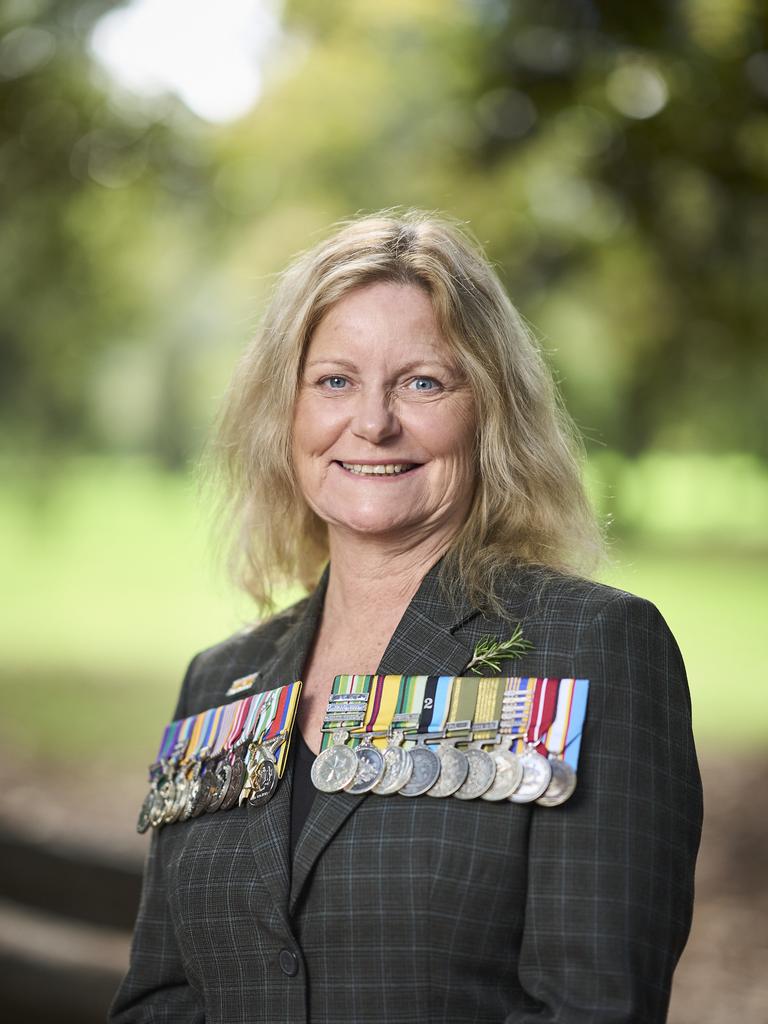
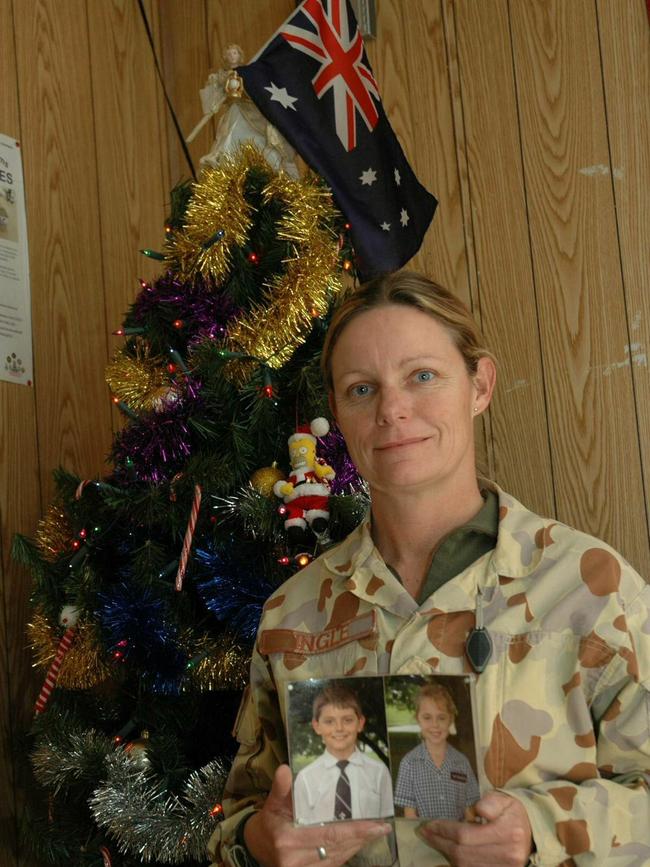
Warrant Officer Class One Ingles – who was deployed to Iraq twice in 2006 and 2016 – said growing up with “fond memories” of having a “collective military family” compelled her to experience what it was like for herself.
“ I went off and joined … just like dad,” Ms Ingle said.
Continuing the family tradition, Ms Ingle’s daughter also later joined.
“That felt good because when you’re a mother in defence – I had teachers calling me the ‘absent’ parent when I’d come to pick the children up,” she said.
“So, if one of your children are prepared to go and join what you were leaving them for, I guess that meant I hadn’t scarred them too much by being away.”
– reporting by Charlie Dadds





